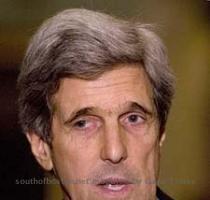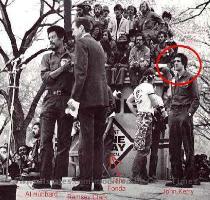Afghan official: Karzai wants corruption probes led by Afghans, West should take back seat
By Deb Riechmann, APThursday, September 9, 2010
Afghan AG: West should not lead corruption fight
KABUL, Afghanistan — Afghanistan’s top prosecutor said Thursday that while President Hamid Karzai backs the work of Western-supported anti-corruption teams, he wants investigations to be led by Afghans and free of interference from international advisers.
New rules are being drafted to regulate the activities of two investigative units probing corruption, which has undermined public trust in Karzai’s government and its efforts to win the loyalty of many Afghans and pull them away from the Taliban.
Although Karzai has promised to let the investigative units operate independently, U.S. officials fear the president will use the new rules to rein in or derail corruption probes of top officials.
“The foreigners cannot make decisions,” Attorney General Mohammad Ishaq Aloko said. “They can’t give orders to do this, or do that. They can’t interfere to say ‘capture this person’ or ‘release that person.’”
He said that Karzai wants the role of Western mentors to be restricted to logistics, training and consultation. He said the rules were being reviewed at the Ministry of Justice and could take weeks to finalize.
In Washington, Pentagon press secretary Geoff Morrell said Defense Secretary Robert Gates stands by his endorsement of Afghan management of the corruption task forces. They should be Afghan-led but “internationally credible,” Morrell said.
Gates had defended Karzai’s commitment to fighting corruption during a joint appearance in Kabul last week.
“Do they have the means now to do this on their own? I don’t think anyone has suggested that,” Morrell said. “I think there is outside expertise, advice that can be brought to bear to help the Afghans deal with this difficult problem.”
U.S. Rep. Rick Larsen, a Democrat from Washington state, issued a statement Wednesday saying that any effort by Karzai to limit international assistance in anti-corruption investigations was a mistake.
“President Karzai must take a zero-tolerance stance against corruption to ensure the Taliban is the enemy and not a choice,” said Larsen, who recently visited Afghanistan.
U.S. and British advisers insist they are not directing cases, only mentoring prosecutors and investigators at Afghanistan’s Major Crimes Task Force and Sensitive Investigative Unit.
Karzai, however, suspects the Western advisers are heavily influencing anti-corruption cases. Karzai was angered by the recent arrest of one of his close aides, Mohammad Zia Salehi, the chief of administration for Afghanistan’s National Security Council. Salehi, who has not been formally charged, was arrested in July for allegedly accepting a car in exchange for his help in thwarting another corruption case involving a company that handles huge money transfers worldwide. Karzai quickly ordered his release.
Western law enforcement officials who advised on the case said investigators followed Afghan law in taking Salehi into custody for questioning. Karzai insisted that Salehi’s civil rights were violated in the pre-dawn arrest that he described as reminiscent “of the Soviet Union, where people were taken away from their homes by armed people in the name of the state.”
During a visit to Afghanistan last month, U.S. Sen. John Kerry, chairman of the U.S. Senate Foreign Relations Committee, said he told Karzai that his effort to battle corruption was crucial if he wanted to retain the support of U.S. taxpayers at a time when more American troops are dying in the war and the American economy is weak.
U.S. lawmakers, who are expressing doubt that the military effort can succeed without a serious campaign against bribery and graft, have been anxiously waiting to see whether Karzai would rein in the anti-corruption investigators.
While the Karzai government has said that it is working to define the units’ legal status, the president said in a statement that he and Kerry agreed that they “would always operate as independent sovereign Afghan entities, run by Afghans, allowed to pursue their mission of enhancing transparency and combating corruption, free from foreign interference or political influence.”
Associated Press writer Anne Gearan in Washington contributed to this report.
Tags: Afghanistan, Asia, Central Asia, Criminal Investigations, John Kerry, Kabul, North America, Political Corruption, Political Issues, United States, Washington


